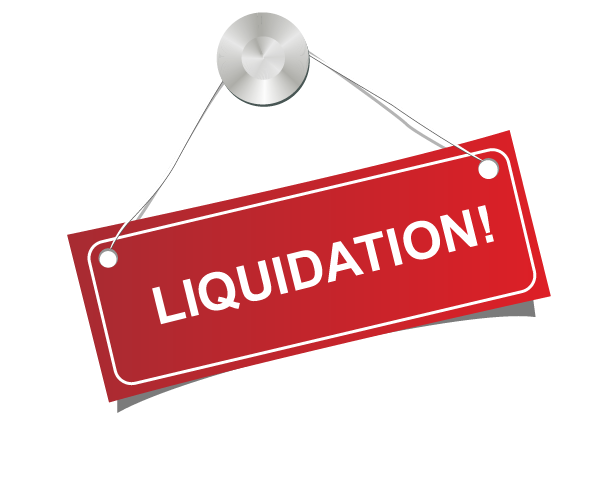In this blogpost, Nitin Jeswani, a student of National Law University, Odisha comprehensively lays down the fundamental duties of a liquidator during the complex procedure of winding up of a company.
Liquidation, commonly known as winding up, is the process where by a company gets legally dissolved. The liquidation of a company is the process of conducting an investigation into the company’s affairs, cessation of the company’s activities, the realization of the company’s assets, the payment of the company’s creditors to the extent possible (i.e. if there are sufficient funds) and, if after having discharged the company’s debts there are any surplus funds, distribution of same to the members. The company is then dissolved, terminating its legal existence. [1]
When a Liquidator of a company is appointed, he is bound to perform many functions/ duties which are provided under various provisions of the law. The functions or duties of a liquidator so appointed under the provisions of a statute are given below:
Duty to provide notice
The first duty which a liquidator has to fulfill is that of providing notice of his appointment. Section 178 (b) of the Income tax act clearly conveys that who has been appointed as the liquidator shall, within thirty days after he has become such liquidator, give notice of his appointment to the Assessing Officer who is authorized to assess the income of the company. [2] Without adhering to this requirement such person shall not be capable of acting as liquidator. Sections 275(6) and 310 (4) of the Indian Companies Act 2013 [3] make it mandatory for the Company liquidator and the provisional liquidator to file such a declaration disclosing conflict of interest or lack of independence, if any, within 7 days of their appointment to the tribunal. Moreover, all letters, invoices or orders issued must describe the company as undergoing liquidation. [4]
Duty to investigate into the affairs of a company from its inception
The liquidator has a duty to examine the conduct of the company’s present and past officers and to see if they are guilty of any unlawful conduct in handling the company’s affairs. The liquidator may obtain all the necessary information which he reasonably requires in the course of winding up and accordingly all officers of the company are bound to inform him of any relevant issue. In case of any default, the officers will be committing an offence. [5] This function of the liquidator comes into effect through the provision of Section 277 (5) (ii) [6] which makes it clear that it is the function of the liquidator to investigate into the state of affairs of the company.
Duty to recover and realize the company’s assets
The foremost duty of a liquidator is that of the recovery and realization of the assets of the company. All his powers are designed to ensure the effective discharge of this duty. As given in Section 277 (5) (iii), this is the fundamental duty of a liquidator. The liquidator must recover the assets of the company for the benefit of it’s creditors and members. He has to take into his custody and control, all the property, actionable claims etc. and to take such steps necessary to protect and preserve the properties of the company. This duty is confirmed under the Section 283 [7]. This is to effect the best possible distribution. [8]
Cases in which there are actual questions as to the veracity of the company’s management and to the quality of its record-keeping and accounting function, it will be an important part of a liquidator’s function to ensure that he obtains control of the records and books so that he can engage in all the necessary investigations of transactions of the company. [9]
And once he has taken control over all the necessary books and records and also recovered all the property of the company then he must realize the said property and if the realization has been done by way of a sale, he may act in the name of the company and sign or execute all the necessary documents. [10]
This is done so that the next step could be taken in furtherance and so that the company’s creditors can be paid. In the case of compulsory winding, the court shall cause the assets of the company to be collected and to be applied in the discharge of the company’s liabilities. In practice, this duty has to be fulfilled by the liquidator and not by the tribunal. Section 277 (5) (v) makes it clear that it is the function of the liquidator to cause the sale of the assets of the company.
And in case where the assets are not sufficient to pay off the company’s liabilities, the liquidator must distribute the proceeds by the way of dividends between those creditors who have proved their debts. Each creditor is paid in accordance with his order of priority and in proportion to the amount due to him. [11]
Duty to form winding up committee and to make reports
It is the duty of the company liquidator, within 3 weeks from the date of passing of winding up order, to make an application to the tribunal for the constitution of a winding up committee under Section 277 (4). The winding up committee shall comprise of the following persons:
- Official liquidator attached to the tribunal;
- Nominee of secured creditors;
- A professional nominated by the tribunal.
And also it is the duty of the liquidator to hold meetings of the said winding up committee and be the convener of such meetings and to record the minutes of such meetings. Section 277 (6) obligates a liquidator to file a report of the meetings of the committee along with the minutes recorded of the meetings.
It is the duty of the Company liquidator under Section 288 [12], to make periodical reports, with respect to the progress of the winding up of the company, to the tribunal. And on the basis of such a report the tribunal may review its orders and make such modifications as thinks fit.
Peripheral duties of a liquidator
To Act Impartially
A Liquidator is accountable to the court, to the creditors and to the shareholders as well. It is his duty to maintain an even and impartial hand among all the persons whose interest are involved in the winding up proceedings of the company.
It is also his duty to make himself thoroughly acquainted with the state of affairs of the company, and also about the technical hurdles that the company is facing. The liquidator has to act fairly and honourably in considering the claims of persons against the company.[16]
To act with skill and diligence
A liquidator owes a duty to act with care and efficiency. He has a duty to exercise his particular professional skills to complete the winding up process and he shall incur liability if he fails to show the required degree of care and skill which, by accepting the office, he holds himself out as possessing. Therefore, a high standard of care and diligence is required of a liquidator. He must act reasonably in all the circumstances. [17] He should always avoid placing himself in a position where personal interests could conflict with professional duties. [18]
To maintain Confidentiality
As the liquidator happens to be a person who is acquainted with all the state of affairs of the company and he also happens to be the one who has all the records and accounts of the company. Therefore it can be said that it is the duty of the liquidator to maintain all these records and accounts safely and should not disclose these information to a person who is not authorized to see these documents. The liquidator must not disclose information about the case to any person who does not have a legitimate reason to have the details of the case. [19]
Conclusion
A liquidator is an agent of the company, while a Court-appointed liquidator is, in addition, an officer of the Court, having a duty to act responsibly. He is accountable to the creditors, to the shareholders and also to the court.
The liquidator has a fiduciary relationship with the company as well as its shareholders and is generally obliged to make accounts and returns and should thoroughly investigate the causes of the company’s failure. He also has a duty to look upon the conduct of managers of the company and in the wider public interest, take action against those engaged in commercially culpable conduct.
The purpose of appointing a liquidator is to wind-up a failing business and so he should act with professional efficiency. He must not exercise the sort of complacency that might have caused the business to decline in the first place.
This article has been reviewed by Pragya and published by Sylvine Sarmah
Footnotes –
- The Principal Duties and Powers of Liquidators, Receivers & Examiners under the Companies Act,http://www.odce.ie/Portals/0/Documents/Functions/Liquidators_Receivers_Examiners.pdf.
- Official Liquidator v. Commissioner of Income Tax, AIR 1970 Cal 349.
- The Companies Act, 2013(18 of 2013), § 275(6) & 310 (4).
- Duties and Obligation of a Liquidator, http://www.lawteacher.net/free-law-essays/business-law/duties-and-obligations-of-a-liquidator-business-law-essay.php.
- Duties of a Liquidator, http://www.closedforbusiness.ie/duties-of-a-liquidator.
- The Companies Act, 2013(18 of 2013), § 277(5) (ii).
- The Companies Act, 2013(18 of 2013), §
- Duties And Obligation of a Liquidator, http://www.lawteacher.net/free-law-essays/business-law/duties-and-obligations-of-a-liquidator-business-law-essay.php.
- Parkwell Investments Ltd v. Wilson &Anor, [2014] EWHC 3381(Ch).
- Content of Order, Duties and Functions of Provisional Liquidator, https://www.insolvencydirect.bis.gov.uk/technicalmanual/Ch1-12/Chapter2/part2/part_2.htm.
- Insolvency Guardian, What is the Role of a Liquidator?, https://insolvencyguardian.com.au/liquidators-role/.
- The Companies Act, 2013(18 of 2013), § 288.
- The Companies Act, 2013(18 of 2013), § 314(3).
- The Powers and Duties of the Committee of Inspection of Winding up Process, COI, http://www.mfglobal.com.sg/downloads/COI%20Powers%20and%20Duties.pdf.
- The Companies Act, 2013(18 of 2013), § 318(1).
- BabulalRukmanand v. Official Liquidator, Bharatpur, AIR 1968 Raj 214.
- Standard Bank of South Africa v. The Master of the High Court (Eastern Cape Division), [2010] 3 All SA 2010 (SCA).
- Responsibilities of a liquidator, https://insolvencyguardian.com.au/liquidators-role/.
- Main Functions of Official Liquidator, http://www.companyliquidator.gov.in/12/aboutus_data.htm.
 Serato DJ Crack 2025Serato DJ PRO Crack
Serato DJ Crack 2025Serato DJ PRO Crack














 Allow notifications
Allow notifications



A Precise and comprehensive presentation on topic